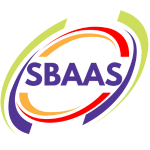Unleashing the Power of Generative AI - Essential Strategies for Australian Small Businesses
The AI Revolution and Australian Small Businesses
Generative AI is dramatically reshaping the business landscape. Australian small businesses, often agile yet resource-constrained, stand to benefit enormously from integrating generative AI into their operations. Embracing this powerful technology enables innovation, efficiency, and sustained competitive advantage.
Understanding Generative AI and Its Potential
Generative AI refers to advanced artificial intelligence capable of creating content, making decisions, and automating processes. It empowers businesses to streamline operations, enhance customer experiences, and foster innovation at unprecedented levels.
Essential AI Strategies for Australian Businesses
Integrating generative AI requires strategic thinking and practical steps to ensure effective adoption. Australian businesses must implement robust AI strategies tailored to their unique needs.
Small Retail Businesses
Small retailers can use generative AI to personalise customer experiences through targeted recommendations and customised promotions, significantly boosting customer engagement and sales.
Service Industry
Service-based businesses can leverage generative AI for efficient client interactions, automating responses and providing instant, accurate information, enhancing customer satisfaction and loyalty.
Manufacturing
Manufacturing companies can optimise production through generative AI-powered forecasting and predictive maintenance, significantly reducing downtime and increasing productivity.
Implementing Generative AI Safely
Safety is crucial when deploying generative AI. Businesses must incorporate AI guardrails to manage risks, ensure transparency, and build trust among customers and employees.
Overcoming Common AI Integration Challenges
Many businesses encounter obstacles in integrating AI. Addressing common challenges proactively ensures smoother implementation and maximises the benefits of generative AI.
Empowering Employees through AI
Empowering employees to harness generative AI tools is vital. Training and upskilling enable teams to unlock AI’s full potential, driving greater operational effectiveness and innovation.
Hypotheticals
Healthcare
A small clinic adopting generative AI could automate patient follow-ups and scheduling, drastically reducing administrative tasks and allowing healthcare providers to focus more on patient care.
Agriculture
Agricultural businesses using generative AI can analyse extensive environmental data to predict crop yields and weather impacts, enhancing decision-making and profitability.
Education
Educational providers leveraging AI can offer personalised learning experiences, adapting content dynamically to student performance, improving learning outcomes.
Tailored Strategies by Business Size
- Micro-Businesses: Should initially focus on easily deployable AI tools to automate routine tasks and enhance customer interactions.
- SMEs: Can strategically implement generative AI across multiple business functions, optimising performance, driving growth, and fostering innovation.
Practical Steps for AI Integration
- Set Clear Objectives: Identify specific business goals AI will support.
- Choose Appropriate AI Tools: Select AI solutions that align with business needs and capabilities.
- Establish Guardrails: Implement policies and systems for responsible AI usage.
- Continuous Training: Invest in employee training to maximise AI adoption and benefits.
Final Thoughts
Australian small businesses are uniquely positioned to harness the transformative power of generative AI. By proactively adopting strategic, safe, and practical AI solutions, businesses can achieve significant growth, efficiency, and competitive advantage.
Ready to explore how generative AI can revolutionise your business? Book an appointment today, arrange a call back, or find out more about SBAAS on our About Us page.
Sources
- McKinsey & Company. (2023). What is multimodal AI?
- McKinsey & Company. (2023). What are AI guardrails?
- McKinsey & Company. (2023). Implementing generative AI with speed and safety.
- McKinsey & Company. (2023). The next innovation revolution powered by AI.
- McKinsey & Company. (2023). How COOs maximize operational impact from Gen AI and agentic AI.
- McKinsey & Company. (2023). Overcoming two issues that are sinking Gen AI programs.
- McKinsey & Company. (2023). Superagency in the workplace: Empowering people to unlock AI’s full potential at work.
- McKinsey & Company. (2023). The future of customer experience: Embracing agentic AI.

Eric Allgood is the Managing Director of SBAAS and brings over two decades of experience in corporate guidance, with a focus on governance and risk, crisis management, industrial relations, and sustainability.
He founded SBAAS in 2019 to extend his corporate strategies to small businesses, quickly becoming a vital support. His background in IR, governance and risk management, combined with his crisis management skills, has enabled businesses to navigate challenges effectively.
Eric’s commitment to sustainability shapes his approach to fostering inclusive and ethical practices within organisations. His strategic acumen and dedication to sustainable growth have positioned SBAAS as a leader in supporting small businesses through integrity and resilience.
Qualifications:
- Master of Business Law
- MBA (USA)
- Graduate Certificate of Business Administration
- Graduate Certificate of Training and Development
- Diploma of Psychology (University of Warwickshire)
- Bachelor of Applied Management
Memberships:
- Small Business Association of Australia –
International Think Tank Member and Sponsor - Australian Institute of Company Directors – MAICD
- Institute of Community Directors Australia – ICDA
- Australian Human Resource Institute – CAHRI
-

Business in the Wonderful World of Oz – Workplace Health and Safety – A Comprehensive Guide
$29.95 Add to cart -

Business in the Wonderful World of Oz – Risk Management – A Comprehensive Guide
$29.95 Add to cart -

Business in the Wonderful World of Oz – Property Leasing – A Comprehensive Guide
$29.95 Add to cart -

Business in the Wonderful World of Oz – Intellectual Property Rights – A Comprehensive Guide
$29.95 Add to cart -

Business in the Wonderful World of Oz – Future-Ready: Navigating Change and Seizing Opportunity in Australian Business
$29.95 Add to cart -

Business in the Wonderful World of Oz – Fair Work – A Comprehensive Guide
$29.95 Add to cart -

Business in the Wonderful World of Oz – Export and Global Trade – A Comprehensive Guide
$29.95 Add to cart -

Business in the Wonderful World of Oz – Cyber Security – A Comprehensive Guide
$29.95 Add to cart -

Business in the Wonderful Land of Oz – Australian Consumer Law – A Comprehensive Guide
$29.95 Add to cart -

Business in the Wonderful World of Oz – Crisis Management
$29.95 Add to cart -

Business in the Wonderful World of Oz – The Ultimate Guide
$29.95 Add to cart
